Pence to lead US response to coronavirus as Trump urges Americans to prepare
"I think every aspect of our society should be prepared," Trump said.
President Donald Trump announced Wednesday that Vice President Mike Pence would lead the U.S. government response to coronavirus, after days of mixed messages from his administration about the threat to Americans.
Trump told reporters at a news conference Wednesday evening he was not labeling Pence a "czar."
"Mike will be working with the professionals, the doctors and everybody else that's working," Trump said. "The team is brilliant."
The announcement came following days of sending mixed messages on the risk the coronavirus poses to the United States.
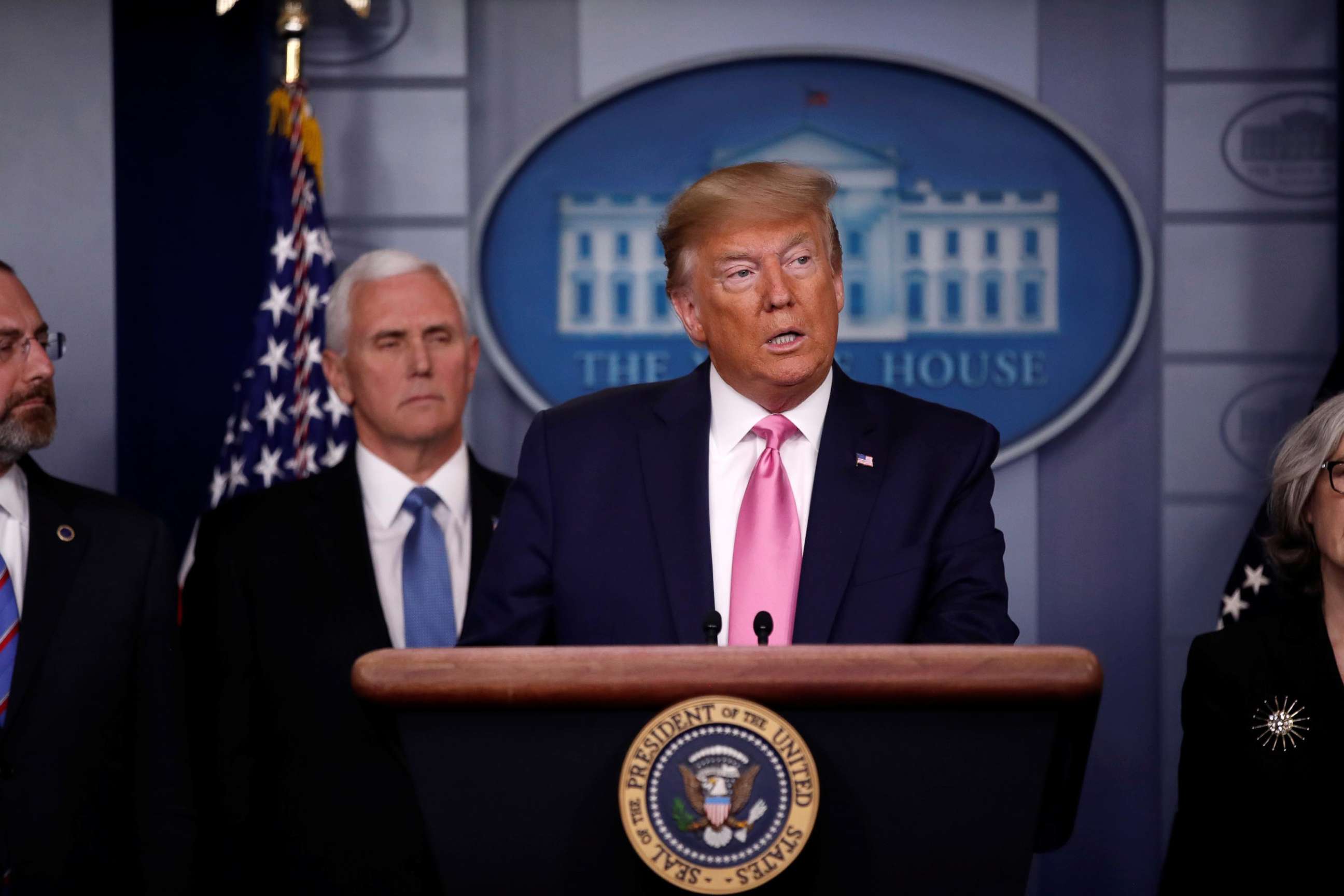
At a rare appearance in the White House's briefing room, the president and his team sought to allay worries about the coronavirus, called COVID-19, repeatedly saying that the risk to Americans remains low but still urging people to prepare.
"I think every aspect of our society should be prepared," including schools, he said, "just in case." But, he added, "We don't think we'll be there."
"This will end," he said.
Trump noted that tens of thousands of people in the United States die every year from influenza, and that coronavirus -- so far -- had not nearly approached that level.
"You don't want to see panic, because there's no reason to be panicked about it," Trump said.
"There's a chance it won't spread, too. And there's a chance it will."
The question, he said, was "at what level" it would.
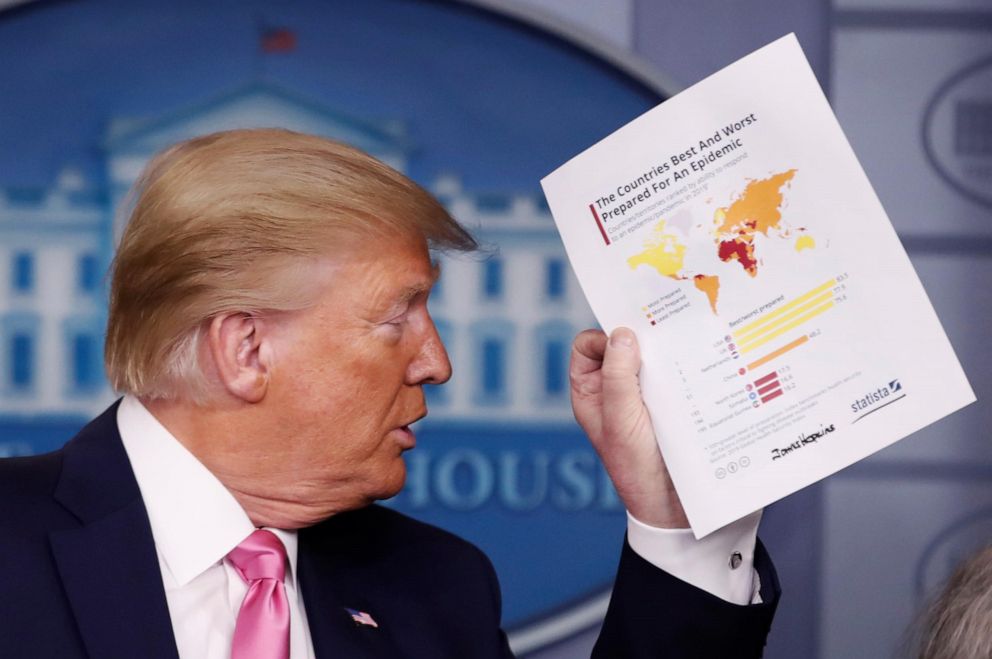
Because of the steps the administration had already taken -- including strict travel restrictions on travelers who have recently visited China, the center of the outbreak -- Trump said, "The risk to the American people remains very low."
"The number one priority from our standpoint is the health and safety of the American people," he said.
Trump said that it was "not the right time" to impose additional restrictions on entry to the United States -- although he noted, "we may do that."
China has imposed severe restrictions on large areas, like the city of Wuhan, and Trump told ABC News' Karen Travers that the United States did have plans for quarantining cities "on a larger scale, if we need it."
But, he added, "We don't think we're going to need it."
Pence noted that "the threat to the American public remains low," telling reporters that he would coordinate the overall response and that additional personnel would be added at the White House.
"My role will be to continue to bring that team together, to bring to the president the best options for action to see to the safety and well being and health of the American people. We'll also be continuing to reach out to governors, state and local officials," Pence said. "We will be working with them in renewed ways to make sure they have the resources to be able to respond."
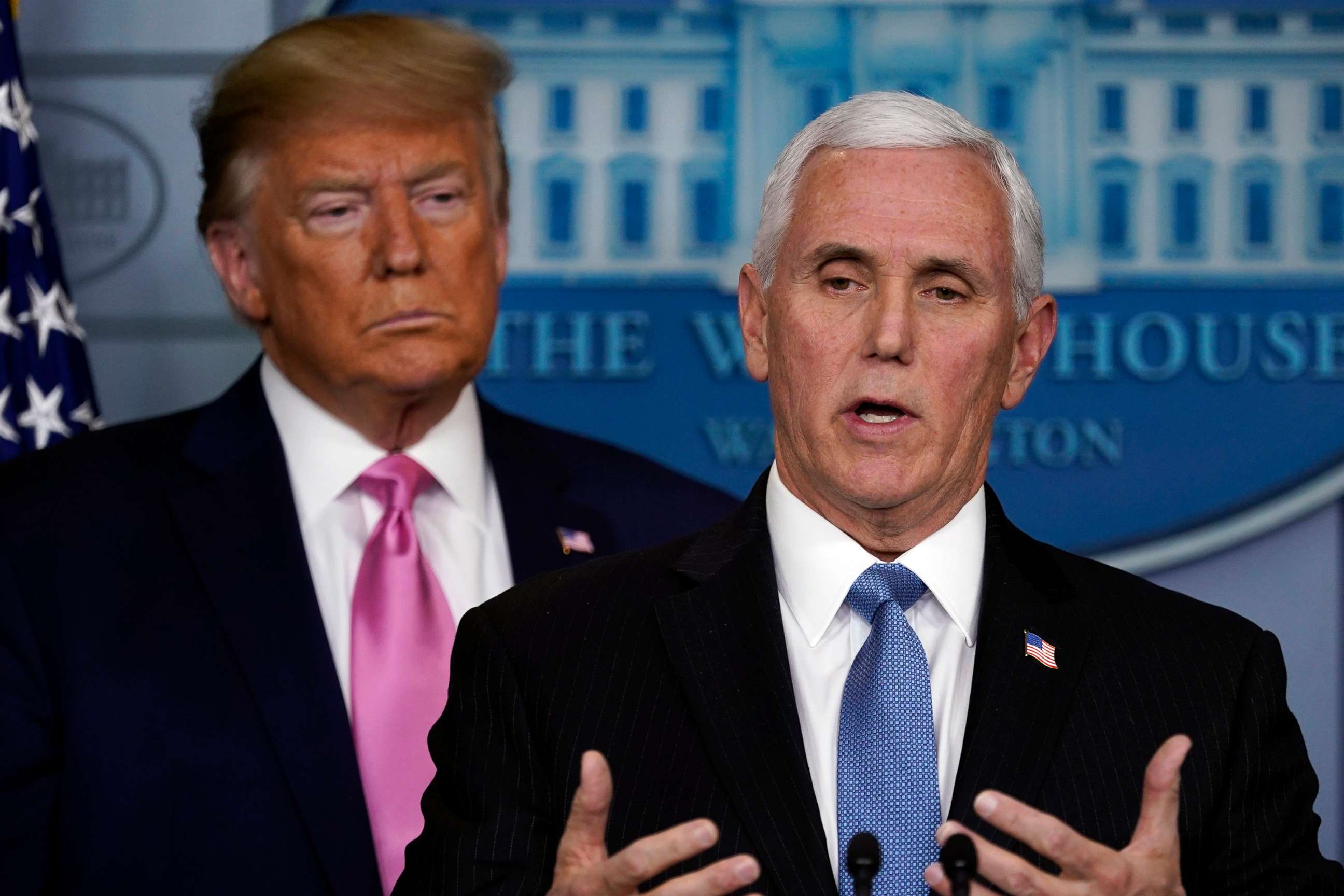
Health and Human Services Secretary Alex Azar, who has been leading a coronavirus task force the president set up, said he was happy to have the support from Pence -- who he said would focus on inter-agency coordination -- and echoed Trump's comments that what the U.S. government has already been doing has worked.
Azar warned, though, that the number of cases would go up.
"The degree of risk has the potential to change quickly," Azar said. "And we can expect to see more cases in the United States. That is why we've been reminding the American public and our state, local and private sector partners that they should be aware of what a broader response would look like."
The president and his team clearly tried to calm fears, a day after a Centers for Disease Control and Prevention official had warned Americans of "significant disruption" coming because of the virus.
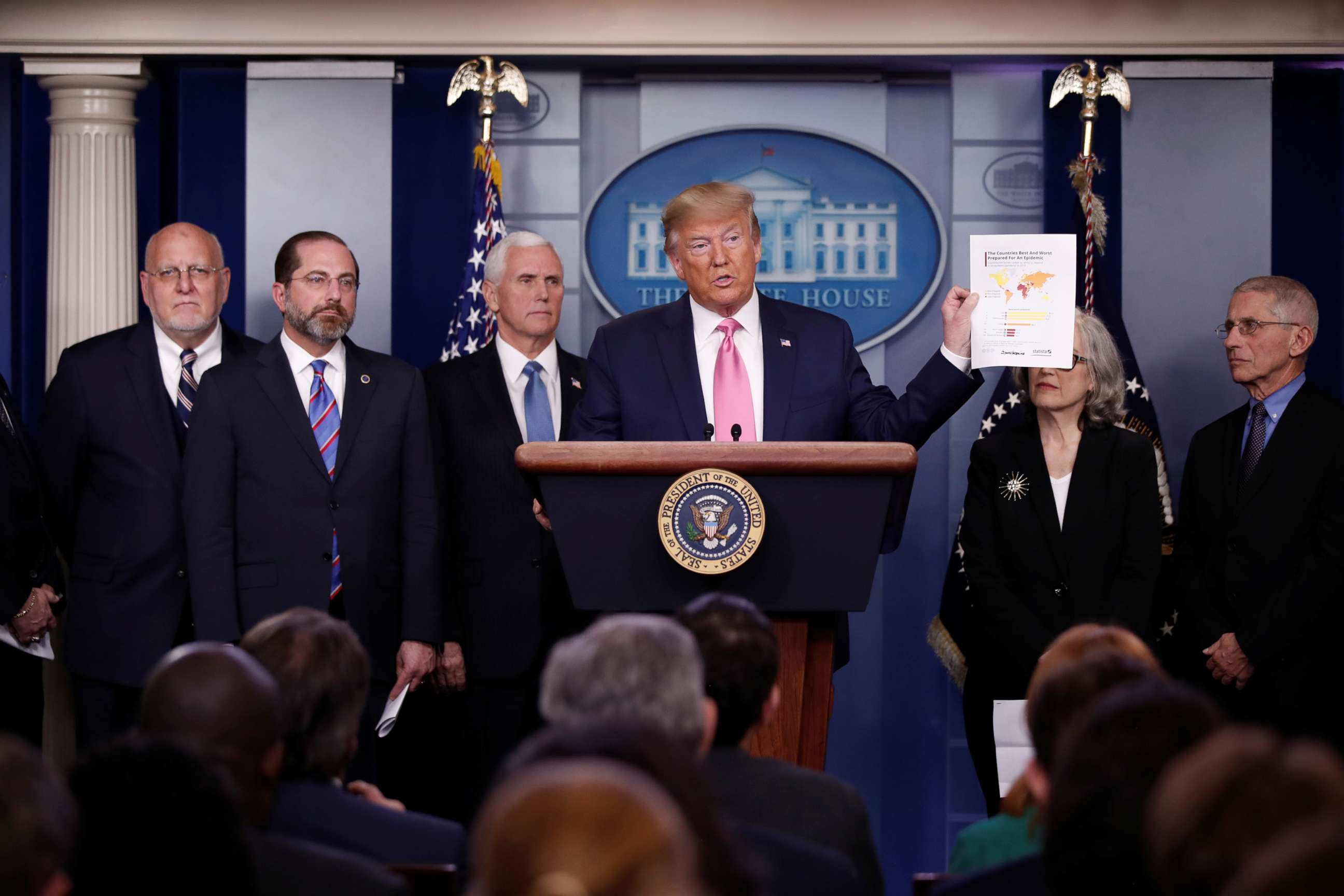
That appeared to contrast with remarks the president made at a press conference in New Delhi earlier in the day, when he said the situation was "under control" and that it was a "problem that's going to go away."
"We have very few people with it," Trump told reporters, adding that he was not totally caught up on the latest details because of his trip to India but that "the people are getting better, they're all getting better," referring to patients in the U.S.
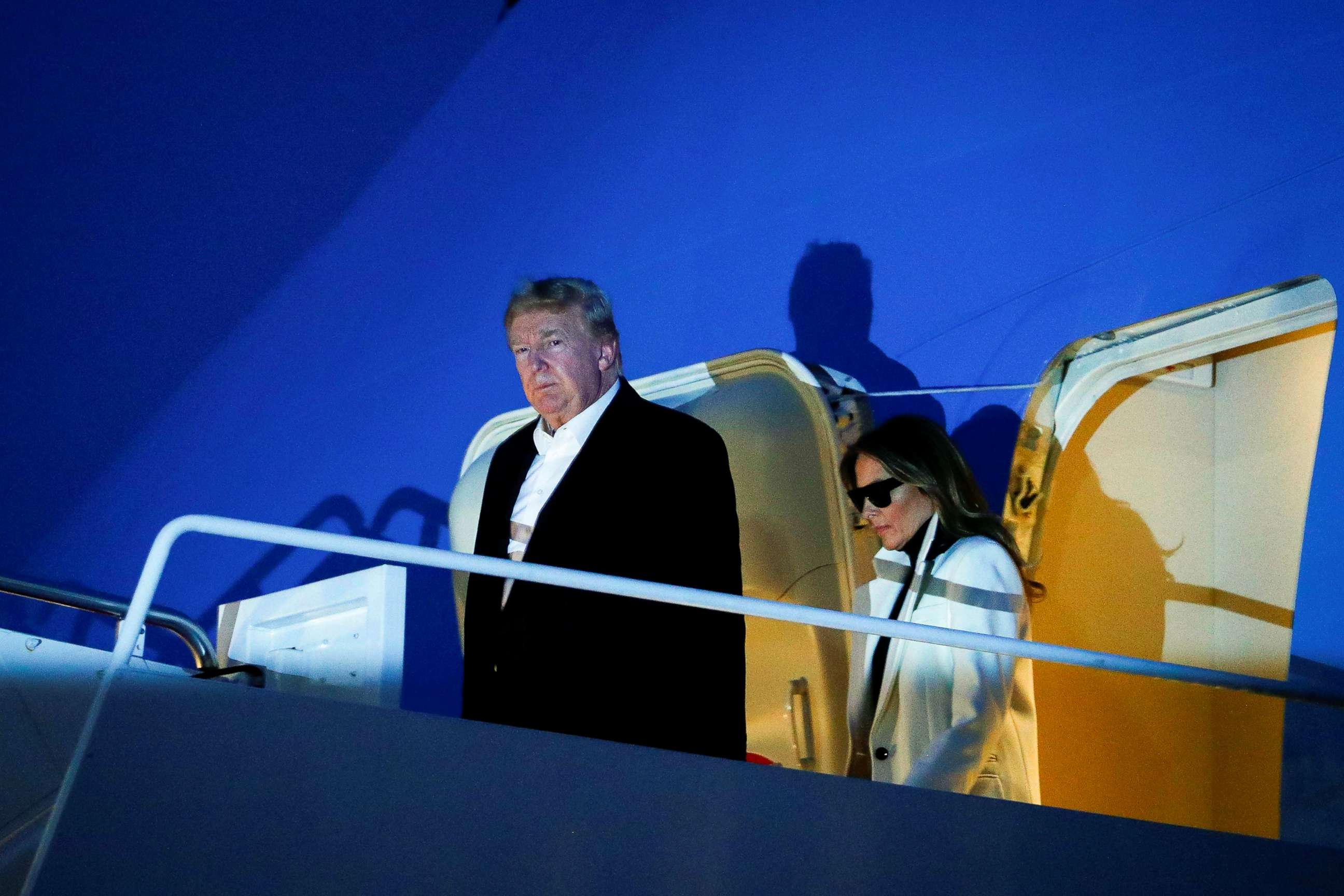
"I think that whole situation will start working out. Lot of talent, lot of brain power is being put behind it," he said.
Trump's comments came on the heels of sharp criticism from Democrats in Congress on the response from the White House. The administration on Monday asked lawmakers for emergency funding to deal with crisis -- $1.25 billion in new funding and another $1.25 billion shifted from existing funding previously allocated for other reasons, including some designated to deal with the Ebola virus.
Senate Minority Leader Chuck Schumer announced Wednesday morning he's preparing a detailed Democratic request for emergency coronavirus funding totaling $8.5 billion. It's expected to be finalized Wednesday and sent to appropriators.
Following Schumer's announcement, House Speaker Nancy Pelosi on Wednesday morning called the president's $2.5 billion request to combat coronavirus "anemic."
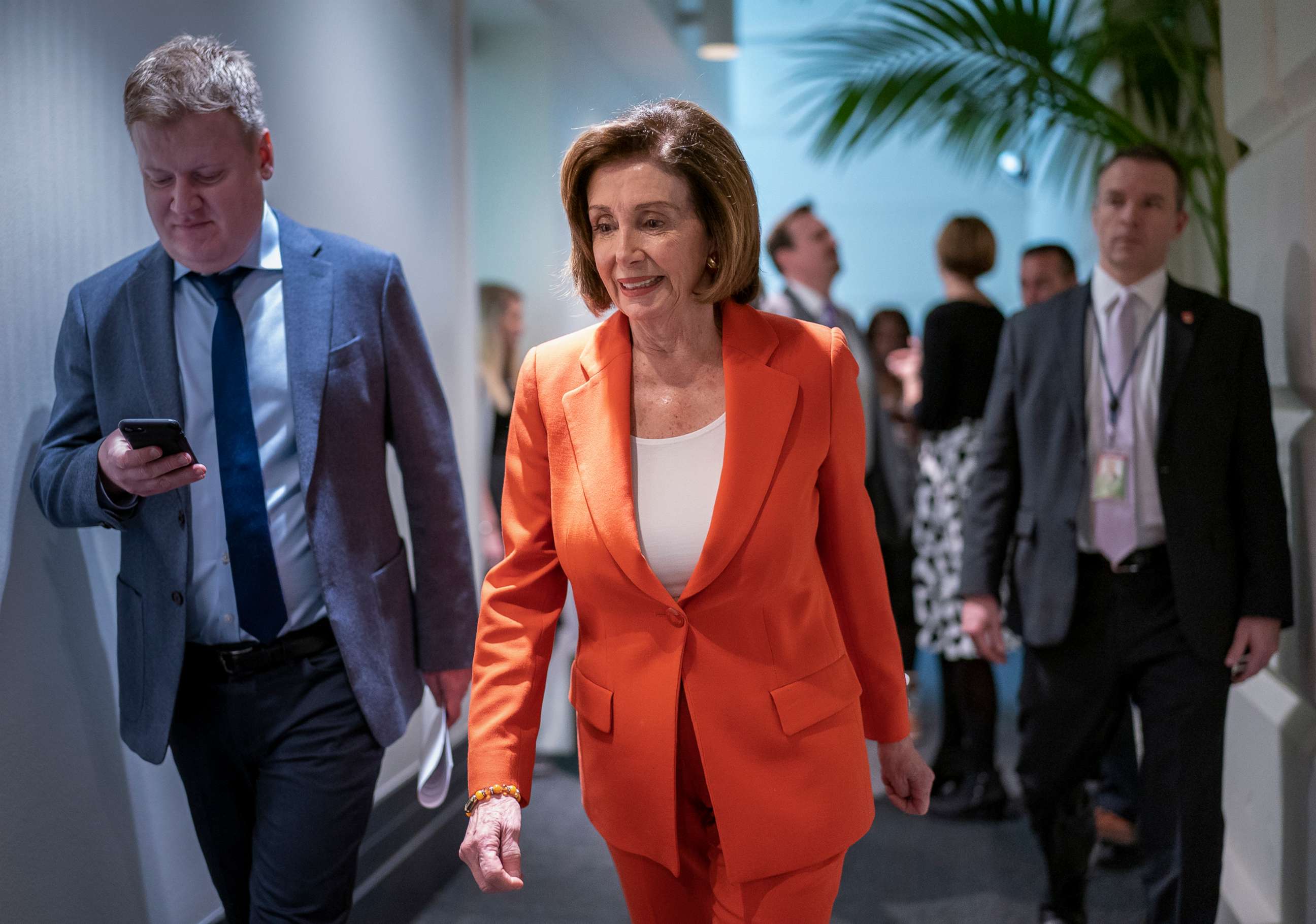
"What he's doing is late -- too late -- anemic," Pelosi said. "Hopefully, we can make up for the loss of time, but it will have to have the professionals in place, the resources that are adequate and not be using scare tactics about people coming back to our country."
She said the House will have a proposal "similar" to the plan put forth by the Senate.
At the Wednesday briefing at the White House, Trump said he would be open to more money from Congress.
CDC Director Anthony Fauci said that since a potential vaccine would take a year and a half to develop, in order to contain the virus in the short term, the focus had to remain on public health measures.
Anne Schuchat, the CDC's principal deputy director, encouraged people to prepare.
"We do expect more cases and this is a good time to prepare. As you heard, it's the perfect time for businesses, health care systems, universities and schools, to look at their pandemic preparedness plans, dust them off and make sure they are ready and we have lots more information at the CDC's website and in partnership on how to do that," she said during Wednesday's news conference.
She also suggested Americans cover their mouths when they cough, stay home when they're sick and wash their hands.
Fears about the coronavirus' global spread have rocked markets around the world, with the Dow Jones Industrial Average plunging Monday and Tuesday, and dropping to a lesser degree on Wednesday.
Trump acknowledged coronavirus had played a role, but he also said investors' fears of a Democrat winning the presidency this year had contributed, too.
He specifically pointed to concern over remarks by the Democratic presidential candidates at a debate Tuesday night, when they criticized Trump's handling of the response to the virus. He said comments by the candidates, who he called "Democrat fools," had made "a huge effect" on markets.
But the largest drops in the Dow Jones came before the debate -- and the decrease on Wednesday, after the debate, was significantly smaller.
Trying to allay further economic woes, which could threaten his re-election in November, Trump promised the spread would not last forever -- a claim not directly backed up by health officials.
"This is going to end," Trump said. "Hopefully it'll be sooner rather than later."
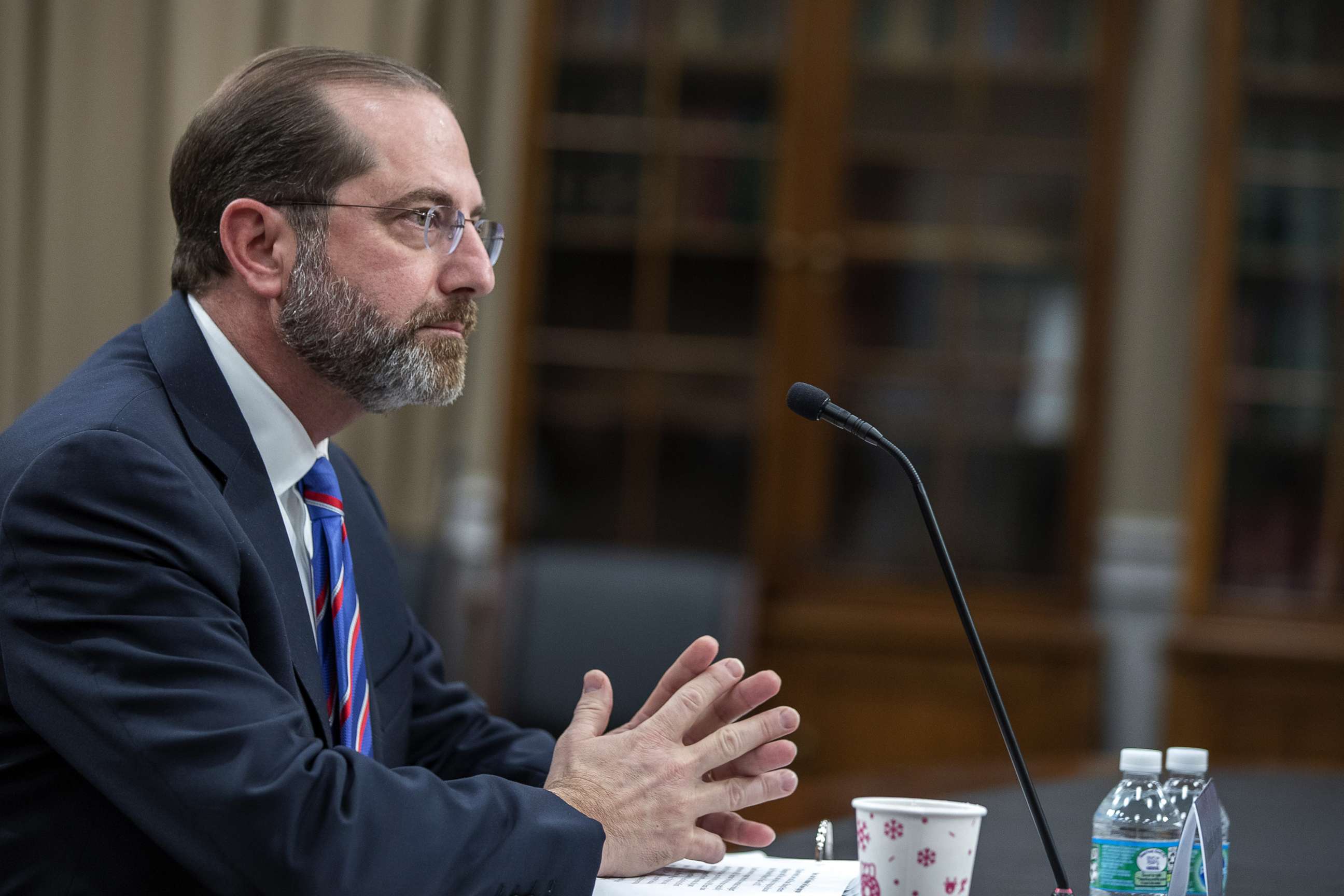
Lawmakers from both sides of the aisle have questioned Trump's top advisers this week on whether the administration was doing enough almost two months into the global crisis, expressing deep skepticism of the president's claims that the situation was "under control."
"That is a remarkable level of containment here in the United States," Azar told reporters at a press conference earlier Tuesday, later adding that "we are realistic" there would be more cases.
Azar, in a second day of testimony before the House Appropriations, called the community transmission of the virus in other nations "concerning."
Rep. Mark Pocan, D-Wis., said to Azar point-blank, "Provide me some security that someone knows what's going on in this administration about the coronavirus."
Azar responded, "The risk right now is very low to Americans."
"We have always been clear that number one that could change rapidly, and from the outset I and the public health experts said we fully expect we will see more cases here in the United States," he continued. "We have to be mentally prepared and also as a government prepared."
Later, when Pocan asked about a Politico report that the White House is considering appointing a coronavirus czar, Azar, after first saying he wouldn't comment, then said he didn't expect one now or in the near future.
"I don't anticipate one. This is working extremely well." he said, referring to how he and HHS are leading the administration's efforts. "If it doesn't work or if there's a need for change ... then that would be for the president to decide."
ABC News' Trish Turner, Jordyn Phelps, Anne Flaherty, Elizabeth Thomas and Michelle Stoddart contributed to this report.




